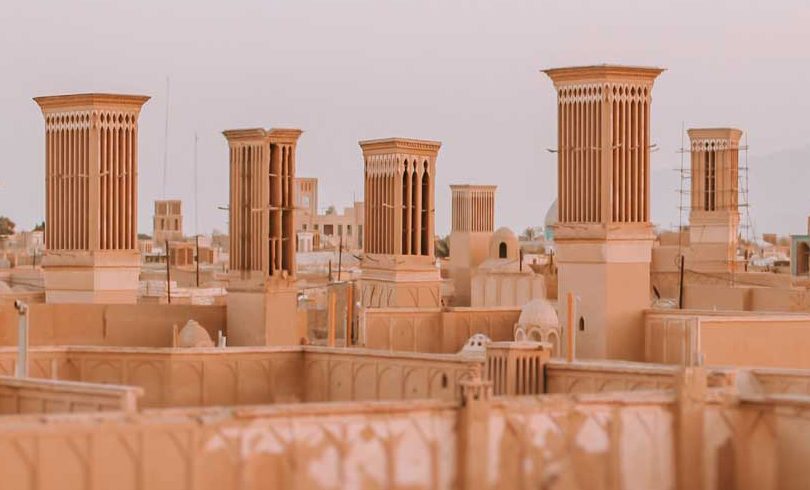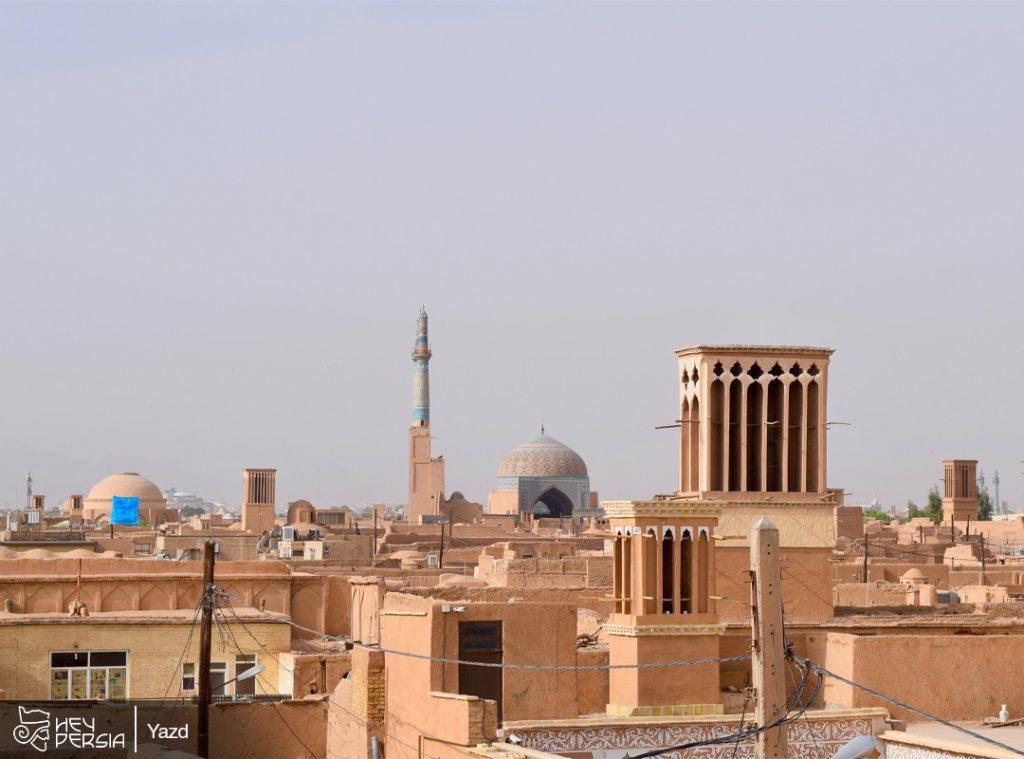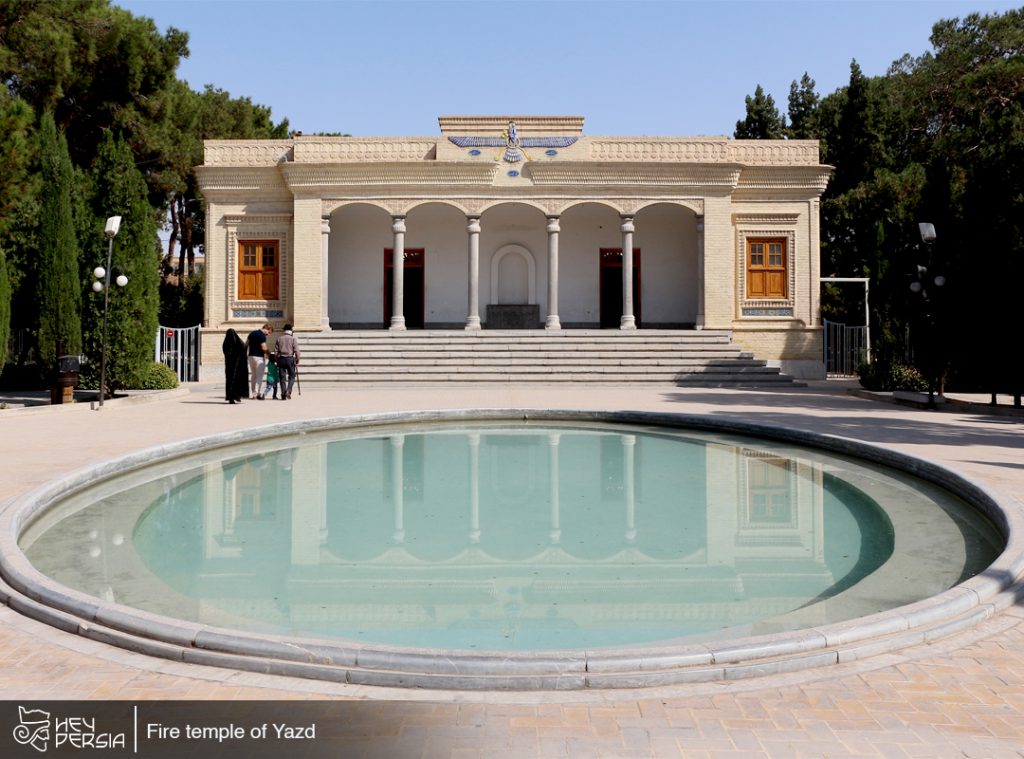Meybod in Iran, Is in the central province of Yazd, A city steeped in history and culture. With its ancient roots dating back thousands of years, this city has evolved into a fascinating destination. It is known for its unique mudbrick architecture, historical sites, and traditional industries. Stay with Hey Persia to learn more.
Historical Significance of Meybod in Iran
Generally, Meybod’s historical significance is into its very foundations. It Is dating back to ancient times when it played a pivotal role as a stop along the Silk Road. Its history is through several key periods:
Pre-Islamic Era
Meybod’s history extends deep into antiquity. With archaeological evidence suggesting human settlements in the area as far back as 7000 BCE. During the Achaemenid Empire (6th to 4th centuries BCE), it served as a key transit point for trade caravans traveling through the region.
Sassanid Dynasty
Meybod’s iconic Narin Castle, a mudbrick fortress that still stands today, was during the Sassanid era (3rd to 7th centuries CE). This imposing structure, often referred to as Meybod Castle, served both defensive and commercial purposes.
Islamic Era
With the advent of Islam, Meybod continued to thrive as a hub for trade and craftsmanship. The city’s heritage is famous by its role in preserving Persian culture and traditions.
Mudbrick Architecture of Meybod in Iran
One of Meybod’s most distinctive features is its traditional mudbrick architecture. It reflects the city’s adaptation to its arid desert surroundings. The use of adobe bricks, made from a mixture of clay, straw, and water, is not only an aesthetic choice but also a functional one, offering natural insulation against the region’s extreme temperatures.
Adobe Buildings
Walking through Meybod’s labyrinthine streets, visitors are greeted by structures made entirely from adobe bricks. These buildings boast intricate geometric patterns and designs, showcasing the artistry of local craftsmen.
Wind Towers (Badgirs)
Meybod’s traditional homes often feature wind towers, known as badgirs, designed to capture desert breezes and channel them into the interior, providing natural ventilation and cooling.
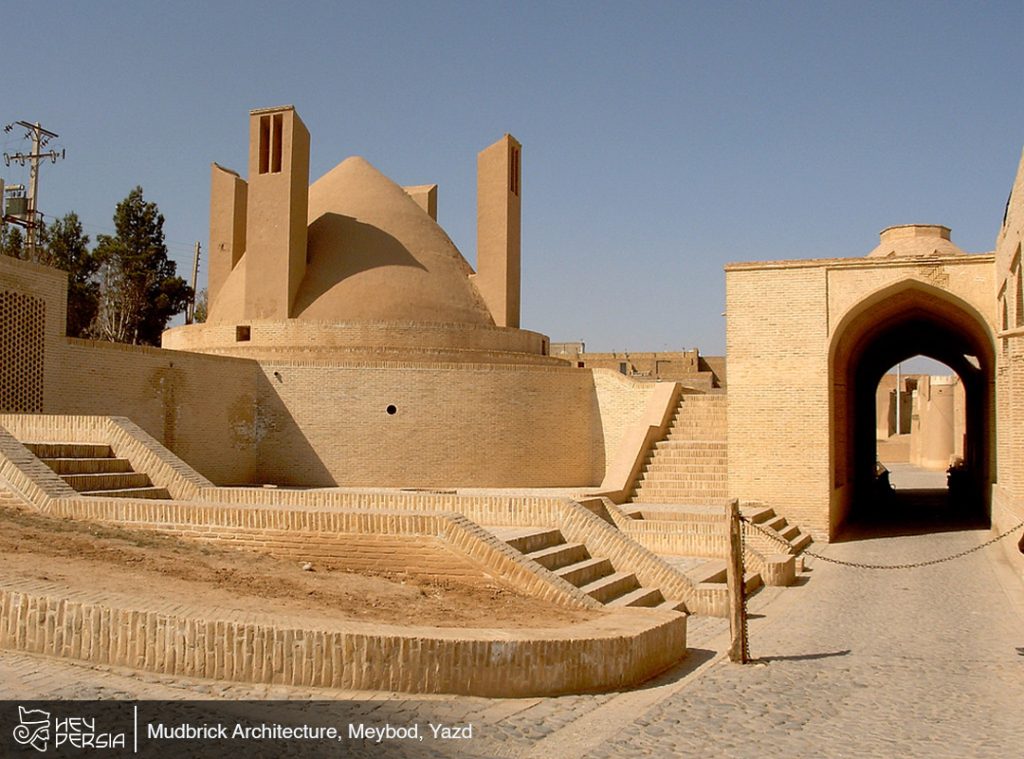
Pigeon Towers of Meybod in Iran
Meybod is renowned for its unique pigeon towers, which have historical and agricultural significance. These structures are both functional and decorative, embodying the city’s connection to the land.
Pigeon Keeping
Pigeon towers were built to house pigeons, which played a crucial role in the region’s agriculture andPigeon droppings, rich in nutrients, were used as fertilizer, enhancing crop yields in the arid landscape.
Architectural Beauty
In addition, Pigeon towers are adorned with intricate designs, and their distinctive shapes contribute to the city’s architectural charm. Visitors can marvel at these unique structures that reflect a deep connection between nature and architecture.
Local Industries and Crafts of Meybod in Iran
Meybod is known for its traditional industries and crafts that have been passed down through generations, contributing to the city’s economic and cultural heritage.
Silk Weaving
The city has a rich tradition of silk weaving, producing exquisite textiles known for their quality and intricate patterns. Visitors can explore local workshops and witness the art of silk production.
Pottery and Ceramics
Meybod is famous for its pottery and ceramics, with artisans creating a wide range of items, including colorful tiles, pottery vessels, and decorative pieces.
Carpets and Rugs
Accordingly, The city’s skilled carpet weavers produce beautiful rugs and carpets, showcasing intricate designs and vibrant colors.
Narin Castle (Meybod Castle) located in Meybod in Iran
Narin Castle stands as a testament to Meybod’s enduring history and architectural prowess. This mudbrick fortress, which dates back to the Sassanid period, served multiple functions over the centuries.
Architectural Marvel
Narin Castle’s soaring walls and watchtowers, constructed with adobe bricks, create an imposing silhouette against the desert horizon. The castle’s architectural brilliance is a prime example of ancient Persian engineering.
Defensive Fortification
Originally built as a defensive stronghold, Narin Castle protected the city and its inhabitants from external threats during turbulent times.
Caravanserai
At various points in history, Narin Castle also functioned as a caravanserai, providing shelter and respite to travelers and traders along the Silk Road.
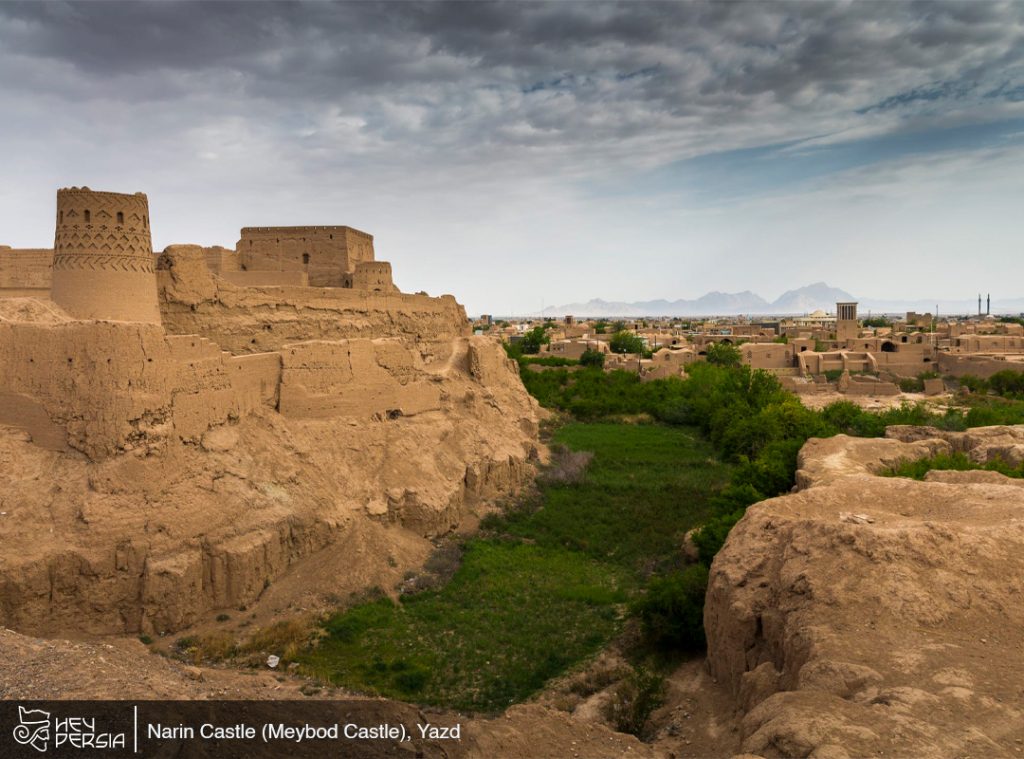
Tourism and Cultural Experience of Meybod in Iran
Accordingly, Meybod has become an increasingly popular destination for tourists seeking an authentic Persian experience, a journey through history, and a glimpse into the traditions of the region.
Tourist Attractions
In addition to Narin Castle and pigeon towers, Meybod offers other attractions such as the ancient caravanserai, the Chapar Khaneh (historical post office), and the Jameh Mosque.
Local Cuisine
Travelers can savor traditional Persian cuisine at local eateries, tasting dishes that reflect the region’s flavors and culinary heritage.
Hospitality
Meybod is known for its warm hospitality, and visitors often have the opportunity to interact with friendly locals who take pride in sharing their city’s history and culture.
Meybod in Iran welcomes you
Finally, Meybod in Iran, with its deep-rooted history, mudbrick architecture, and vibrant cultural traditions, is a hidden gem in the heart of Iran’s desert region. As visitors explore its ancient streets, encounter its architectural marvels, and immerse themselves in its local crafts and cuisine, they embark on a journey through time and gain a profound appreciation for the enduring spirit of this remarkable city in the desert. Meybod stands as a testament to the rich tapestry of Iran’s cultural heritage, waiting to be discovered and cherished by travelers from around the world.


